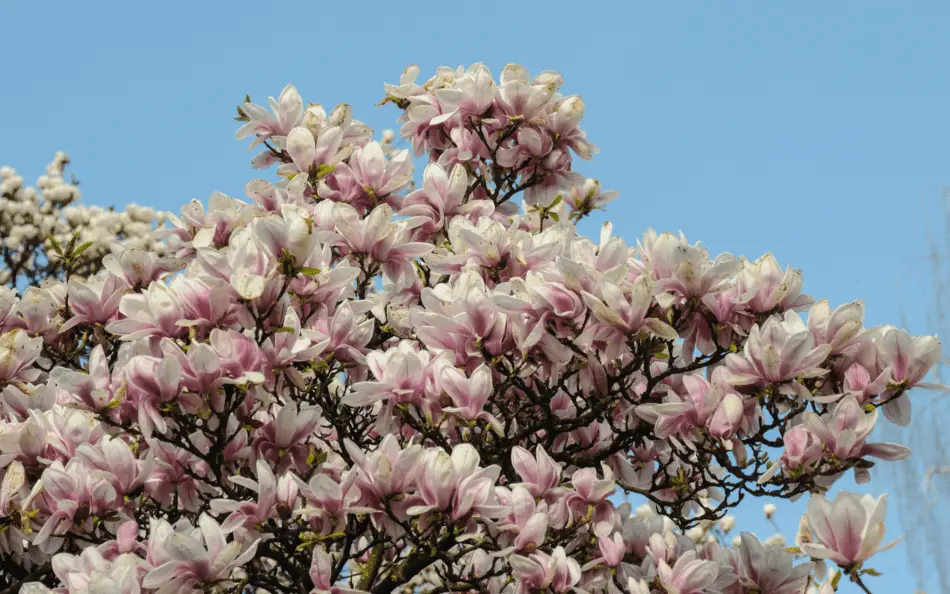Having backyard chickens can provide multiple benefits to you, your family, and even your backyard. They produce eggs almost every day, eat anything you give them, and will freely clean your yard from insects and bugs. Although chickens ingest nearly anything they find, you must know that there are multiple types of trees and fruits they shouldn’t eat.
Generally speaking, magnolia trees are safe around backyard chickens. Although, you may find it unusual to see that your chickens will not eat or peck the magnolia tree, its leaves, and fruits.
In this article, we will discuss whether magnolia trees are safe for your chickens. We will also list and discuss which trees and plants are safe and bad for your flocks. So, if you want to know more, read on!
Are Magnolia Trees Safe for Backyard Chickens?
Planting a magnolia tree in your backyard is safe, even for your chickens. You may noticed that they do not touch the tree and eat anything that falls from it. For some unknown reason, chickens avoid eating anything from a magnolia tree, but you don’t have to worry as berries from magnolia trees are known to be non-toxic.
Best Trees, Plants, Herbs, and Vegetables to Grow for Your Backyard Chickens
As mentioned earlier, chickens will eat almost anything you give them. They like to ravage around your backyard to try and look for some bugs to eat. Listed below are the best trees, plants, herbs, flowers, and vegetables to grow in your backyard that will not only benefit you, but your chickens as well.
| Shrubs & Small Trees | Plants | Herbs | Flowers | Vegetables |
| Currants | Sage | Fennel | Violets | Amaranth |
| Raspberry Bushes | Lavender | Comfrey | Marigolds | Buckwheat |
| Mulberries | Sunflowers | Nettles | Bee Balm | Plantain |
| Blueberry Bushes | White Clover | Basil | Roses | Alfalfa |
| Siberian Pea Shrub | Rosemary | Nasturtium | Echinacea (coneflower) | Lentils |
| Fruit Trees & Canes | Thyme | Sage | Apple Blossoms | Beans, Peas & Legumes |
| Oregano | Calendula | Rhubarb | ||
| Wormwood | Carnations | Squash | ||
| Dandelions | Chrysanthemum | Onion, Garlic & Leaks | ||
| Chickweed | Elderberry Blossoms | |||
| Hibiscus | ||||
| Hollyhock | ||||
| Peony | ||||
| Snap Dragon |
Before you start planting your way through your garden, know that backyard chickens have a way to destroy any garden, especially young plants, which is why most people put their chickens in a separate area.
While your plants are young, make sure to put them somewhere your chickens cannot access, like a cage or cloche. Wait until your plants are taller and more stable, and thus, can withstand the scratching and pecking of the chickens before moving them.
Chickens are mischievous little creatures that will destroy anything that they can get their little claws on. Sadly, your yard will be one of their favorite spots to terrorize because of the plants that can be found there. If you want to prevent this from happening, we have a few tips on how to prevent chickens from ruining your yard.
Plants to Avoid When You Have a Backyard Chicken
Not all plants are good for backyard chickens. Due to their inability to tell what’s good and bad for them, it’s important to pay extra attention to the surroundings of your backyard and the plants you put in it.
Here’s a list of what plants to avoid growing in your backyard for your chickens. Note that these plants can be toxic to chickens and can put them in severe danger when ingested.
-
Azalea
Although these plants are beautiful and aesthetically pleasing, all parts of Azalea are highly toxic and can cause some serious side effects, like cardiac damage, weakness, loss of coordination, and digestive upset.
-
Apricots
The pits and leaves of apricots contain cyanogenic glycosides that are toxic for chickens and can trigger several adverse reactions, like low blood pressure, seizures, and breathing problems. The leaves are more toxic if they just came from disease, frost, or drought, which can increase their toxicity.
-
Beans
Although we’ve included beans in the list of the best vegetables for your chicken, you must remember that uncooked or raw beans are harmful to chickens as they contain hemagglutinin.
-
Holly
The fruits of holly have low toxicity levels, but you have to look out for their leaves since they contain saponin, which can cause drooling, vomiting, and diarrhea in your chickens. Make sure to always trim the tree and keep it somewhere your chickens cannot access.
-
Lobelia
Lobelia is used as a medicinal herb and can grow up to 3 feet tall. The plant itself contains toxins known as pyridine alkaloids that can trigger severe reactions like a lack of coordination, tremors, weakness, and increased breathing rate.
-
Nightshades
Nightshades come in 70 varieties, which include eggplants, tomatoes, bittersweets, and peppers. They contain huge amounts of alkaloids that can cause breathing troubles, increase salivation, decrease appetite, and weaken the heart rate. Although you may occasionally give your backyard chickens tomatoes, you should be careful about giving out raw potato peels.
-
Oak Trees
When you have oak trees on your property, you should make sure that your chickens will not be able to come close to them. Both the acorns and leaves of this tree contain tannic acid that can cause excessive thirst, a lack of appetite, diarrhea, and frequent urination.
-
Rhubarb
Rhubarb leaves contain oxalates or oxalic acid that can be toxic to your backyard chickens. It can cause increased salivation, jaundice, and tremors. Thus, make sure to restrict your chickens and put your rhubarb trees where they cannot reach them.
-
Periwinkle
Periwinkle is best known for its creeping myrtle name and contains cardiac glycosides, which are highly toxic and can cause seizures, tremors, and even death. Since periwinkles are hard to contain, make sure this plant is confined and separated from your chickens.
-
Yew
Yew is nicknamed the “tree of death” because of its high toxicity. It indeed contains cardiotoxic taxine alkaloids, which can cause cardiac arrhythmia and, later on, death. Ingesting even a small amount of this plant can be dangerous since it’s fast-acting. If you have a free-range flock, make sure that all yews are completely separated.
Chickens are raised for a variety of reasons. For the most part, they are raised for their meat and eggs while some are raised as pets. If you are interested in keeping a few of these birds in your backyard, one of the first questions that may have popped in your mind is do backyard chickens involve a lot of work? Read our article to find out.
Conclusion
If you have magnolia trees in your backyard, you don’t have to worry about your chickens because they tend to leave this tree and everything that falls from it alone. In addition to this, magnolia berries are known to be non-toxic so your chickens will be okay even if they eat them.
Although magnolia trees are safe for your chickens, there are other plants that should not be anywhere near your chickens because they are toxic and can cause adverse reactions when ingested. We have listed these plants above so make sure to remember them and keep them out of your backyard.

